
George Orson Welles was an American director, actor, writer, producer, and magician who is remembered for his innovative work in film, radio, and theatre. He is considered to be among the greatest and most influential filmmakers of all time.
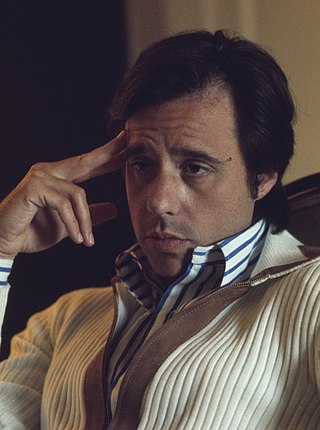
Peter Bogdanovich was an American director, writer, actor, producer, critic, and film historian. He started his career as a film critic for Film Culture and Esquire before becoming a prominent filmmaker as part of the New Hollywood movement. He received accolades including a BAFTA Award and Grammy Award, as well as nominations for two Academy Awards and two Golden Globe Awards.

Lee Ann Remick was an American actress and singer. She was nominated for the Academy Award for Best Actress for the film Days of Wine and Roses (1962).
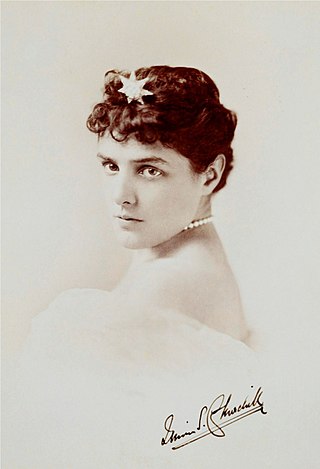
Jeanette Spencer-Churchill, known as Lady Randolph Spencer-Churchill, was an American-born British socialite, the wife of Lord Randolph Churchill, and the mother of British prime minister Winston Churchill.

Jeanne Moreau was a French actress, singer, screenwriter, director, and socialite. She made her theatrical debut in 1947, and established herself as one of the leading actresses of the Comédie-Française. Moreau began playing small roles in films in 1949, later achieving prominence with starring roles in Louis Malle's Elevator to the Gallows (1958), Michelangelo Antonioni's La Notte (1961), and François Truffaut's Jules et Jim (1962). Most prolific during the 1960s, Moreau continued to appear in films into her 80s. Orson Welles called her "the greatest actress in the world".

Major John Strange Spencer-Churchill, known as Jack Churchill, was the younger son of Lord Randolph Churchill and his wife Jennie, and the brother of former Prime Minister of the United Kingdom Sir Winston Churchill.

The Mercury Theatre was an independent repertory theatre company founded in New York City in 1937 by Orson Welles and producer John Houseman. The company produced theatrical presentations, radio programs and motion pictures. The Mercury also released promptbooks and phonographic recordings of four Shakespeare works for use in schools.

F for Fake is a 1973 docudrama film co-written, directed by, and starring Orson Welles who worked on the film alongside François Reichenbach, Oja Kodar, and Gary Graver. Initially released in 1974, it focuses on Elmyr de Hory's recounting of his career as a professional art forger; de Hory's story serves as the backdrop for a meandering investigation of the natures of authorship and authenticity, as well as the basis of the value of art. Far from serving as a traditional documentary on de Hory, the film also incorporates Welles's companion Oja Kodar, hoax biographer Clifford Irving and Orson Welles as himself. F for Fake is sometimes considered an example of a film essay.

Sir Martin John Gilbert was a British historian and honorary Fellow of Merton College, Oxford. He was the author of 88 books, including works on Winston Churchill, the 20th century, and Jewish history including the Holocaust. He was a member of the Chilcot Inquiry into Britain's role in the Iraq War.
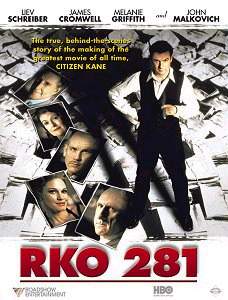
RKO 281 is a 1999 American historical drama television film directed by Benjamin Ross, written by John Logan, and starring Liev Schreiber, James Cromwell, Melanie Griffith, John Malkovich, Roy Scheider, and Liam Cunningham. The film depicts the troubled production behind the 1941 film Citizen Kane. The film's title is a reference to the original production number of Citizen Kane. It premiered on HBO on November 20, 1999.

Young Winston is a 1972 British epic biographical adventure drama war film covering the early years of British Prime Minister Winston Churchill, based in particular on his 1930 book, My Early Life. The first part of the film covers Churchill's unhappy schooldays, up to the death of his father. The second half covers his service as a cavalry officer in India and the Sudan, during which he takes part in the cavalry charge at Omdurman, his experiences as a war correspondent in the Second Boer War, during which he is captured and escapes, and his election to Parliament at the age of 26.

The Magnificent Ambersons is a 1942 American period drama written, produced, and directed by Orson Welles. Welles adapted Booth Tarkington's Pulitzer Prize–winning 1918 novel about the declining fortunes of a wealthy Midwestern family and the social changes brought by the automobile age. The film stars Joseph Cotten, Dolores Costello, Anne Baxter, Tim Holt, Agnes Moorehead and Ray Collins, with Welles providing the narration.
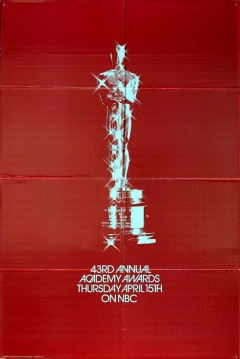
The 43rd Academy Awards ceremony, presented by Academy of Motion Picture Arts and Sciences, was held on April 15, 1971, and took place at the Dorothy Chandler Pavilion to honor the best films of 1970. The Awards, without a host for the third consecutive year, were broadcast by NBC for the first time in 11 years.

The Battle Over Citizen Kane is a 1996 American documentary film directed and produced by Thomas Lennon and Michael Epstein, from a screenplay by Lennon and Richard Ben Cramer, who also narrates. It chronicles the clash between Orson Welles and William Randolph Hearst over the production and release of Welles's 1941 film Citizen Kane, which has been considered the greatest film ever made.
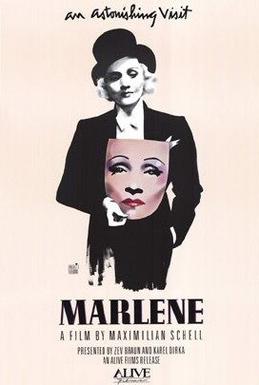
Marlene is a 1984 West German documentary film co-written and directed by Maximilian Schell about German-American actress Marlene Dietrich. It was produced by Bayerischer Rundfunk and OKO-Film and released by Futura Film in West Germany and by Alive Films in the United States.
A King's Story is a 1965 British documentary film directed by Harry Booth about the life of King Edward VIII, from his birth until abdication in 1936. It was nominated for an Academy Award for Best Documentary Feature.

Orson Welles (1915–1985) was an American director, actor, writer, and producer who is best remembered for his innovative work in radio, theatre and film. He is widely considered one of the greatest and most influential filmmakers of all time.
Sentinels of Silence is a 1971 short documentary film on ancient Mexican civilizations. The film was produced by Manuel Arango, and directed and written by the filmmaker Robert Amram, and is notable for being the first and only short film to win two Academy Awards.
Barry Lando is a Canadian journalist, author, and former producer for CBS' 60 Minutes.
Barbara Leaming is an American biographer, whose subjects have included Roman Polanski, Orson Welles, Rita Hayworth, Marilyn Monroe, John F. Kennedy, Winston Churchill, and Jacqueline Kennedy Onassis.
















